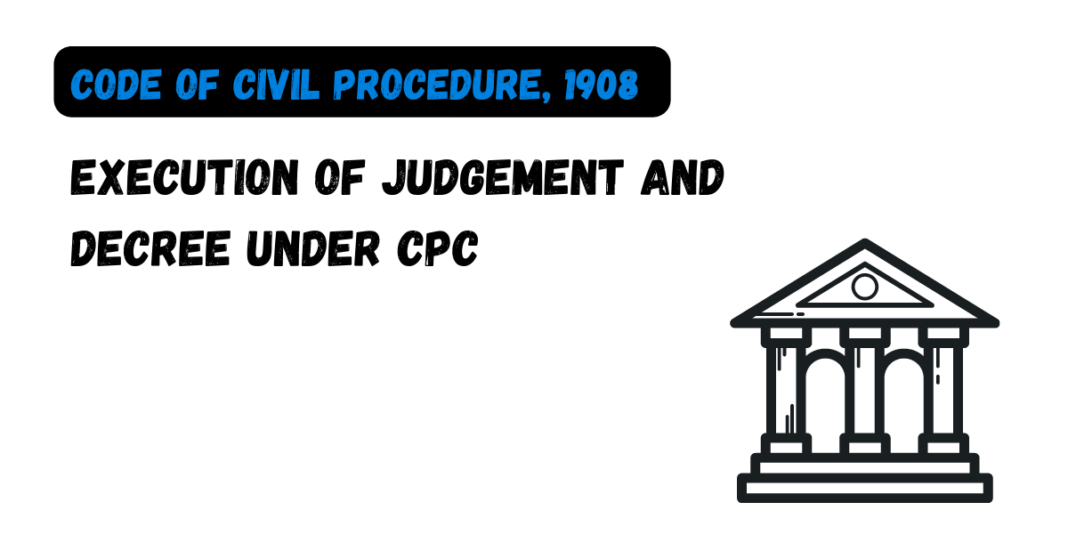Execution of Judgments
- Application for Execution: The party seeking to execute a judgment needs to file an application for execution in the court that delivered the judgment. The application should contain details of the judgment, the relief sought, and the grounds for execution.
- Modes of Execution: The court has the authority to enforce a judgment through various modes, including:a. Payment of Money: If the judgment requires the payment of a sum of money, the court may order the judgment debtor to pay the amount specified in the judgment.b. Restitution of Property: If the judgment involves the return of specific property or assets, the court may direct the judgment debtor to restore the property to the judgment creditor.c. Injunctions and Specific Performance: In cases where the judgment grants injunctions or orders specific performance of a contract, the court may take steps to ensure compliance with the judgment.d. Other Modes: The court has the discretion to adopt any other mode of execution that is appropriate and necessary to enforce the judgment.
- Stay of Execution: The judgment debtor has the right to apply for a stay of execution, temporarily suspending the execution proceedings. The court may grant a stay on suitable grounds, subject to conditions and the furnishing of security.
Execution of Decrees
- Application for Execution: Similar to judgments, the party seeking to execute a decree must file an application for execution in the court that passed the decree. The application should include details of the decree, the relief sought, and the grounds for execution.
- Modes of Execution: The Code provides several modes for the execution of decrees, which may include:a. Attachment and Sale of Property: The court may attach and sell the immovable or movable property of the judgment debtor to satisfy the decree amount.b. Arrest and Detention: In certain cases, the court may order the arrest and detention of the judgment debtor for non-compliance with the decree.c. Attachment of Salary: The court can order the attachment of the judgment debtor’s salary or other periodic payments to enforce the decree.d. Attachment of Debt and Receivables: The court may attach any debt owed to the judgment debtor or any money payable to the judgment debtor to enforce the decree.e. Any Other Mode: The court has the discretion to adopt any other mode of execution as it deems appropriate.
- Objections to Execution: The judgment debtor has the right to raise objections to the execution proceedings, such as challenging the validity of the decree or questioning the mode of execution. The court will hear the objections and decide on their merits.
- Satisfaction of Decree: Once the decree is fully satisfied, the court will record its satisfaction and formally close the execution proceedings.





